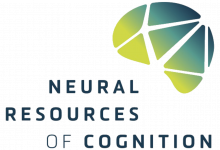The role of noradrenergic decline in ageing
Cognitive and brain physiological aging is a multifactorial process whose protective and risk factors we are increasingly understanding. Due to the increased life expectancy, we have been confronted with an increase in dementia-related diseases in recent decades, for which there is currently no cure. A striking aspect of dementia-related diseases is that neuromodulatory systems are at the center of affected brain structures. It is currently still unclear why neuromodulatory systems are particularly vulnerable, and to what extent early impairments of our neurochemical supply in the brain can accelerate the progression of dementia. In my talk, I will present our current research on the noradrenergic system in ageing which uses cognitive neuroscientific approaches to better understand the extent and consequences of an affected noradrenergic locus coeruleus in ageing. The focus hereby is on the non-invasive imaging of the structure and function of cell nuclei using magnetic resonance imaging as well as drug and brain stimulation interventions that are intended to investigate the consequences of a change in noradrenergic activity.
Dorothea Hämmerer













